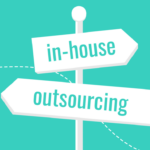Event management software serves as a specialized instrument tailored to facilitate the seamless orchestration of the complete event planning procedure. It boasts an array of capabilities, including attendee registration, ticketing, program scheduling, venue administration, marketing automation, and more.
A pivotal advantage of employing event management software is its aptitude to consolidate all crucial data into a singular, accessible hub. With just a few simple clicks, planners can retrieve attendee information, monitor registrations and ticket sales, craft customized schedules for various sessions or workshops, and even oversee vendors or exhibitors. This not only economizes time but also bolsters efficiency by eradicating manual chores and curtailing the likelihood of errors.
Moreover, event management software provides real-time analytics and reporting features. Planners can analyze crucial data such as attendance rates, revenue generated from ticket sales or sponsorships, feedback from attendees through surveys or social media integration – all in one platform. This helps them make informed decisions quickly and adjust their strategies on-the-go to ensure successful outcomes for their events.
Benefits of using event management software
Event management software is a powerful tool that offers numerous benefits for event planners and organizers. One of the main advantages is increased efficiency. With all the necessary tools in one place, event management software can streamline the entire planning process, allowing users to automate tasks such as registration, ticketing, payment processing, and attendee communication.
Another significant advantage of employing event management software is its enhanced data management capabilities. This software effectively gathers valuable attendee data, including preferences and interests. This wealth of information can be harnessed to customize future events to align with their desires, ultimately leading to improved attendance rates and greater participant satisfaction.
Furthermore, event management software offers real-time analytics and reporting functionalities, enabling organizers to monitor crucial metrics like ticket sales, revenue generated, and attendee engagement levels. By harnessing this data intelligently, planners can make well-informed decisions at every stage of the planning process, thus enhancing the overall success of their events.
Utilizing event management software not only saves time but also enhances the overall quality of events through improved efficiency and data-driven decision-making processes. From simplifying administrative tasks to providing valuable insights into attendee behavior, this technology ensures smoother operations and ultimately leads to more successful events.
Features of event management software
A pivotal component of event management software is its capability to handle registration and ticket management seamlessly. This functionality empowers event organizers to effortlessly construct and oversee online registration forms, gather attendee details, and directly vend tickets through the software. By automating this procedure, it obviates the necessity for manual data input and diminishes the likelihood of errors. This feature also proves advantageous to attendees, enabling them to conveniently sign up for events, opt for various ticket options, and securely process online payments.
Another valuable feature offered by event management software is agenda planning and scheduling. With this feature, organizers can easily create a detailed schedule for their events, including session times, topics, speakers, and locations. This not only helps in efficient time management but also allows attendees to view all sessions at a glance and plan their day accordingly. Moreover,event mobile apps integrated with the software allow participants to access event schedules on their mobile devices for instant updates on any changes or additions made.
Additionally,event management software often includes features that enable effective communication with attendees before,during, or after an event.This may include automated email notifications regarding registration confirmation or updates about sessions.Also,it enables direct messaging capabilities which help participants connect with each other or ask questions to presenters.
As a result,this enhances attendee engagement,and fosters networking opportunities during different stages of an event.Furthermore,the software may offer survey tools to gather feedback from attendees about their experience.This feedback helps organizers evaluate the success of an event,and make improvements in future iterations.
How event management software streamlines processes
Event management software is a powerful tool that can streamline processes in the planning, organization, and execution of events. One of the key ways it achieves this is through automation. Event management software automates time-consuming tasks such as sending out email invitations, tracking RSVPs, and generating event schedules and itineraries.
This not only saves event planners valuable time but also reduces the risk of human error. By automating these processes, event management software ensures that important information is communicated efficiently and accurately to all stakeholders involved in the event.
Event management software also improves collaboration among team members by providing a centralized platform for communication and task assignment. Instead of relying on disjointed email threads or spreadsheets shared via cloud storage platforms, team members can easily access all relevant information and updates in one place. This eliminates confusion and allows for better coordination, resulting in smoother workflows and more successful events.
Another way that event management software streamlines processes is through its data collection and analysis capabilities. By collecting data on attendee behavior, feedback surveys, registration trends, ticket sales, and more, event planners gain valuable insights that can inform future decision-making processes. These insights help optimize marketing strategies to attract the target audience effectively as well as refine event logistics based on attendees’ preferences and needs.
Different types of event management software
Event management software comes in a variety of types, each designed to meet different needs and preferences. One type is registration software, which focuses on managing ticket sales and registrations for events. This software provides a streamlined process for attendees to sign up, select their desired tickets or packages, and make payments online. It also helps event organizers keep track of the number of registrations, collect attendee information, and send out confirmation emails or tickets.
Another type of event management software is venue management software. This type specializes in helping organizers manage venues and the logistics associated with them. From layout planning to scheduling staff members and resources, this software ensures that every aspect is well-organized for the smooth execution of an event. Venue management software also offers features like interactive floor plans that allow organizers to visualize where every exhibitor or session will be located within the venue.
An emerging category in event management software is virtual event platforms. With the rise of remote work and virtual gatherings due to the pandemic, these platforms have become essential tools for hosting webinars, conferences, trade shows, and more online. Virtual event platforms provide features like live streaming capabilities with audience interaction features such as real-time chat and Q&A sessions. They also offer customizable virtual exhibit halls where sponsors can showcase their products or services through videos, downloadable content, or live demos.
Overall these different types of event management software cater to different aspects of organizing events – from registration processes to venue logistics and now even encompassing virtual experiences.
Important factors to consider when choosing event management software
When making a choice regarding event management software, it becomes vital to factor in the scalability and adaptability of the platform. As your organization expands and your events grow in complexity, you require a software solution capable of evolving in tandem. Seek out a platform that facilitates the effortless addition and management of new features, seamless integration with other tools, and the accommodation of larger attendee numbers.
Another pivotal consideration revolves around the software’s degree of customization. Since every event possesses its unique attributes, the ability to tailor the software to precisely match your requirements can significantly boost efficiency and enhance attendee satisfaction. Look for a platform that grants you the freedom to personalize registration forms, branding elements, ticket categories, and reporting functions. By doing so, you can create an experience perfectly aligned with your event’s objectives and aspirations.
Lastly, do not overlook data security when selecting event management software. With sensitive personal information being collected during registration processes, it is essential to choose a platform that prioritizes data protection. Look for software vendors who comply with industry standards such as GDPR or ISO 27001 certification. Additionally, consider platforms that offer secure payment processing options for ticket sales or donations. By placing an emphasis on data security from the beginning of your selection process, you will provide peace of mind both for yourself and your attendees.








